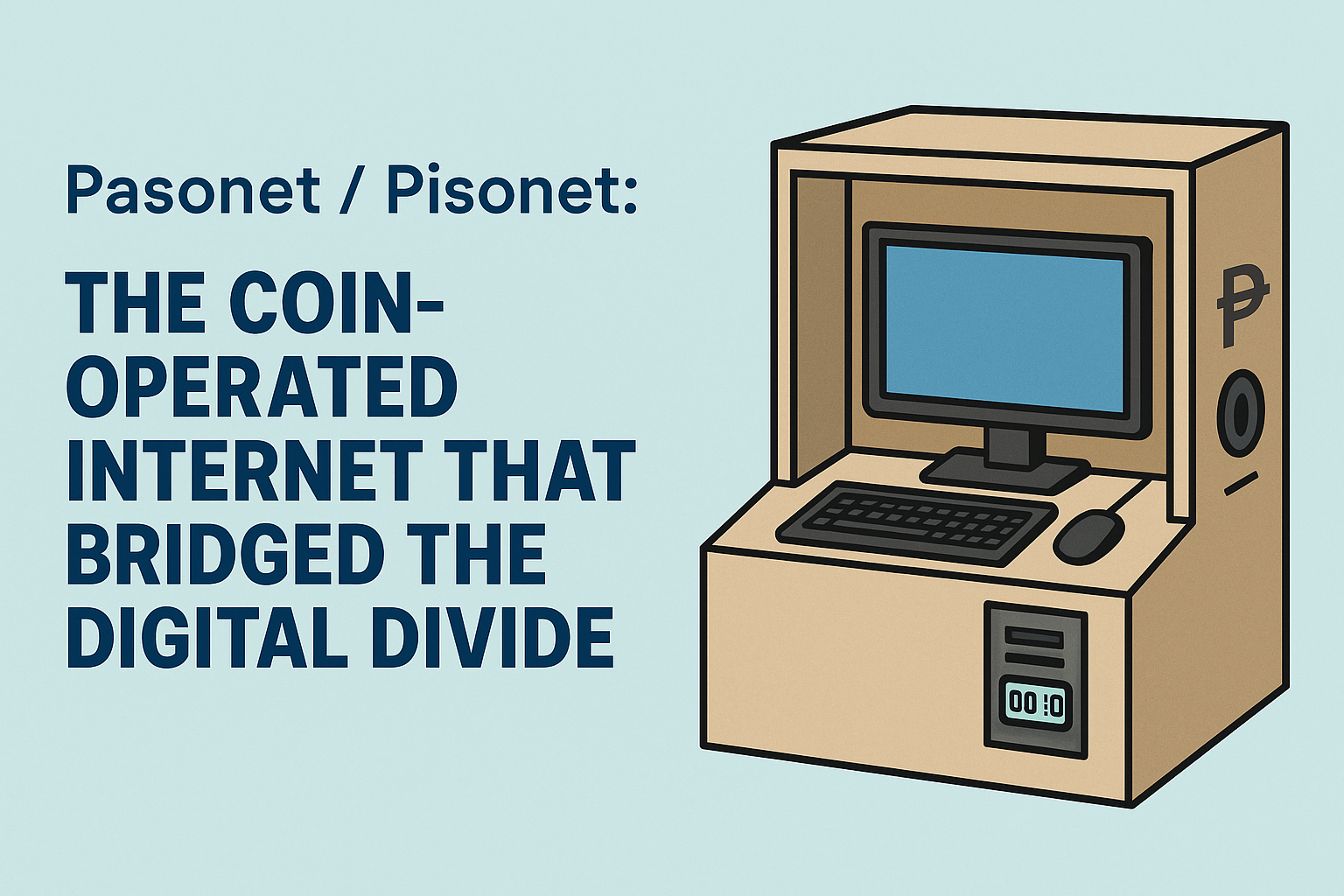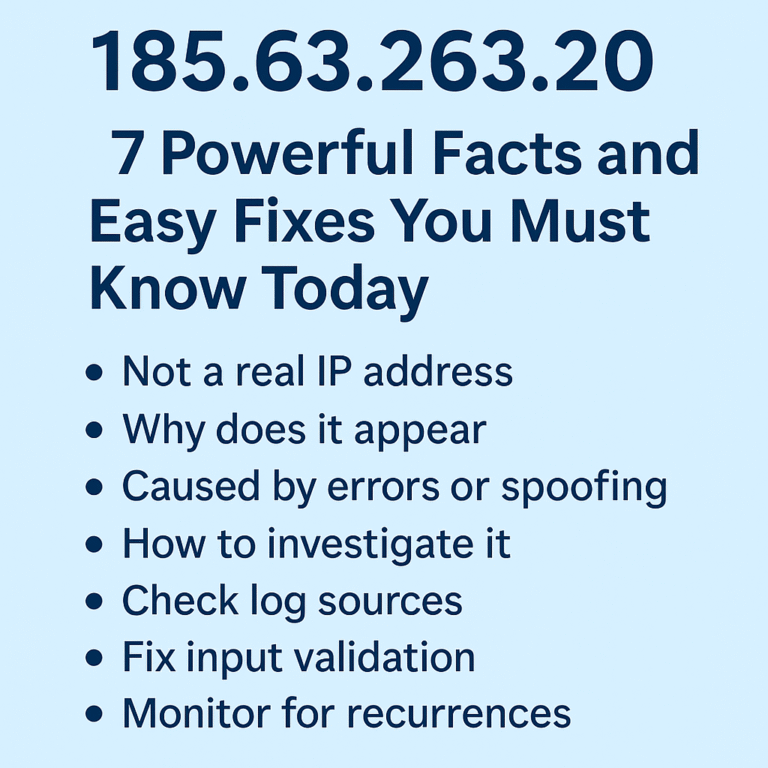Pasonet or Pisonet The Coin Internet System
Pasonet also known as Pisonet is a small business idea from the Philippines. It lets people use the internet for a short time by putting a coin in a machine. One peso gives five to ten minutes of use. This idea helped many people who could not afford home internet.
Pasonet is popular in poor areas and near schools. It gives cheap and easy access to students and workers. It also shows the creative way Filipinos find answers to daily problems.
The Beginning of Pasonet
Early Internet Access
Before fast internet and mobile phones were common most people used computer shops. They paid per hour to use a computer. Many could not afford this. Students and workers only needed the internet for a short time.
They wanted a way to pay less and use only what they needed. This led to the idea of coin based internet use.
The Birth of Pasonet
Entrepreneurs started to build machines that let users insert a coin and use a computer for a few minutes. The machine turned off when time was over. This model became famous in many towns and cities.
People placed Pasonet machines in front of small stores or inside homes. It was simple and did not need much space. It became a common sight near schools and busy roads.
Later on some owners created Piso WiFi. It used the same idea but allowed users to connect through their phones instead of computers.
How Pasonet Works
The Basic Parts
A Pasonet system has a few main parts:
| Part | Purpose |
|---|---|
| Computer or router | Gives internet connection |
| Coin slot timer | Starts and stops the service based on coins |
| Power supply | Runs the system |
| Booth or cabinet | Protects the device and gives privacy |
| WiFi router | Used for wireless access in Piso WiFi versions |
Each peso gives a few minutes of internet. When the timer ends the computer locks or the WiFi stops. The user must insert another coin to continue.
Software Function
The computer has software that:
- Tracks the time of each session
- Blocks the screen when time ends
- Controls the speed of internet per user
- Protects against tampering
The Piso WiFi Upgrade
Piso WiFi is the newer version of Pasonet. It does not need computers. Users connect to WiFi using a phone. The system shows a small web page. The user puts a coin or enters a voucher code. Then the timer starts.
This version is easier to maintain and uses less power. It is now the most common setup in communities.
Business Model
Starting a Pasonet
A person can start a small Pasonet business with little money.
| Type | Cost in Philippine Peso | Description |
|---|---|---|
| Classic Pasonet with one computer | 15000 to 25000 | Includes machine and timer |
| Piso WiFi version | 7000 to 20000 | Works with phones |
| Multiple units | 40000 to 100000 | Several users at once |
Daily Income
Each user pays one peso for a few minutes. Many users use the machine every day. If the area is busy a single unit can earn five thousand pesos or more per month.
Operating Costs
Owners must pay for:
- Monthly internet service
- Electricity bills
- Replacing broken parts
- Business permits
Profit Tips
A good Pasonet location is near a school a dorm or a market.
Clean and working computers attract repeat users.
Adding snacks or printing services can increase income.
Who Uses Pasonet
Typical Users
- Students who need to do homework or research
- Workers who check messages or apply for jobs online
- Gamers who play short online games
- Residents who do not have home internet
Why They Use It
- It is cheap and easy
- No need to buy a data plan
- Works any time of the day
- Gives access to social media and email
Benefits for the Community
Pasonet gives digital access to people who cannot afford monthly plans. It helps students and families stay informed. It also helps small store owners earn extra money.
Challenges and Problems
Pasonet faces several challenges today.
Technical Issues
- Slow connection during busy hours
- Power interruptions
- Broken parts due to heavy use
- Difficulty managing many users
Security Risks
- Users forget to log out from social media
- Some sites may not be safe
- Viruses may spread between users
Legal and Local Rules
- Some towns require business permits
- Homeowners groups may not allow machines in residential areas
- Using home internet lines for business can break provider rules
Social Concerns
- Some people stay too long playing games
- Noise or crowds may disturb neighbors
Growth and New Versions
Pasonet has evolved with time.
Rise of Piso WiFi
Many owners switched from computers to WiFi boxes. This saves space and money. Piso WiFi lets people use their phones instead of shared computers.
New Add-ons
Owners now add:
- QR code payment options
- Prepaid vouchers for longer sessions
- Charging ports for phones
- Advertisements shown on login screens
Combined Services
Some Pasonet stations also offer:
- Printing and scanning
- Mobile load selling
- Soft drinks and snacks
These small additions increase daily profit.
Legal Situation and Government Policy
Local Permits
Every city has rules for running a Pasonet business. Owners must:
- Get a local business permit
- Follow zoning and safety laws
- Pay local taxes
National Internet Policy
The Konektadong Pinoy Act helps improve internet access across the Philippines. It encourages fair use and shared infrastructure. This can lower costs for small operators like Pasonet owners.
Internet Provider Rules
Internet companies often state that personal connections cannot be resold. Some operators still use home internet lines which can cause disconnection if found out.
Examples from the Field
Pasig City
A store owner placed three Pasonet machines near a school. The students used them every afternoon. He earned about six thousand pesos monthly. He later added Piso WiFi for phone users.
Mindanao Province
A teacher made a small WiFi setup in her village. She charged one peso for five minutes. Students used it for online homework. The income helped her pay for electricity and school supplies.
Manila Dorm Area
Several dorm buildings installed Piso WiFi boxes for tenants. Students connected to the system daily and paid ten to twenty pesos each day. The service replaced expensive prepaid data plans.
Advantages
For Users
- Very cheap to use
- Easy to access at any time
- No need for registration
- Useful for short online tasks
For Business Owners
- Low starting cost
- Quick return of investment
- No need for full-time staff
- Can grow by adding more machines
Disadvantages
For Users
- Limited time for big tasks
- Shared computers may not be private
- Internet can be slow or unstable
For Owners
- Machines can break or be stolen
- Strong competition from mobile data
- Rising electricity cost
- Some areas restrict installation
The Future of Pasonet
Adapting to New Technology
Pasonet can stay relevant by:
- Using mobile payment instead of coins
- Adding solar power for remote places
- Installing sensors for automatic reports
- Creating mesh networks for wider coverage
Role in Education
Schools can use Pasonet type systems to give cheap access to online lessons. Barangay centers can host shared WiFi spots to help students and families.
Long Term Vision
Mobile data is cheaper today but not everyone can afford it. Pasonet will continue to serve areas without good signal or where money is tight. It may also work as backup access during power cuts or disasters.
Key Facts about Pasonet
| Topic | Detail |
|---|---|
| Cost per session | One peso for five to ten minutes |
| Setup cost | Fifteen to twenty five thousand pesos per unit |
| Monthly income | Around five to ten thousand pesos |
| Main users | Students and low income workers |
| Common version | Piso WiFi for phones |
| Main problems | Slow speed and high competition |
| Key benefit | Affordable digital access for all |
Frequently Asked Questions
What is Pasonet or Pisonet?
Pasonet or Pisonet is a coin operated internet service.
You put one peso in a machine and get internet time for a few minutes.
It is a cheap way to go online for study work or fun.
Where did Pasonet start?
Pasonet started in the Philippines.
Small store owners made it to help people who cannot afford home internet.
It became popular near schools and public areas.
How much does it cost to use Pasonet?
Most Pasonet machines charge one peso for five to ten minutes.
You can add more coins if you want to stay longer.
What is Piso WiFi?
Piso WiFi is the new type of Pasonet.
You do not use a computer.
You connect your phone or laptop to WiFi and pay with coins or vouchers.
How does a Pasonet machine work?
A coin timer starts the computer or WiFi when you drop a coin.
The timer counts down your time.
When time ends the computer locks or the WiFi disconnects.
Who uses Pasonet the most?
Students use it to do homework or watch lessons.
Workers use it to send messages or apply for jobs.
Gamers and residents also use it for short entertainment.
How can I start a Pasonet business?
You can buy a ready made unit or build one with help from a technician.
You need a stable internet line electricity and a safe location.
A small setup can start for about fifteen thousand pesos.
How much can a Pasonet earn?
A single Pasonet or Piso WiFi unit can earn around five to ten thousand pesos per month.
The income depends on how many people use it every day.
What are the benefits of Pasonet?
- Cheap and easy internet access
- Helps students study
- Gives income to small store owners
- Does not need a big space or high cost
What problems can Pasonet have?
- Slow internet during busy hours
- Broken machines or parts
- Users may forget to log out from accounts
- Some areas need business permits
Conclusion
Pasonet shows how simple ideas can make a big change. It started with a single coin and a short time limit but opened the internet world to many Filipinos. It turned small stores into community tech hubs and gave people the power to connect and learn.The world keeps changing and mobile data grows fast but Pasonet still has a place. It fills gaps in places where internet service is weak or expensive.
As it evolves with WiFi and mobile payment it may stay alive for many years. Pasonet proves that real innovation does not always need big investment. It only needs creativity a clear purpose and a single peso to start.Pasonet also known as Pisonet is a small business idea from the Philippines. It lets people use the internet for a short time by putting a coin in a machine. One peso gives five to ten minutes of use. This idea helped many people who could not afford home internet.
Pasonet is popular in poor areas and near schools. It gives cheap and easy access to students and workers. It also shows the creative way Filipinos find answers to daily problems.







